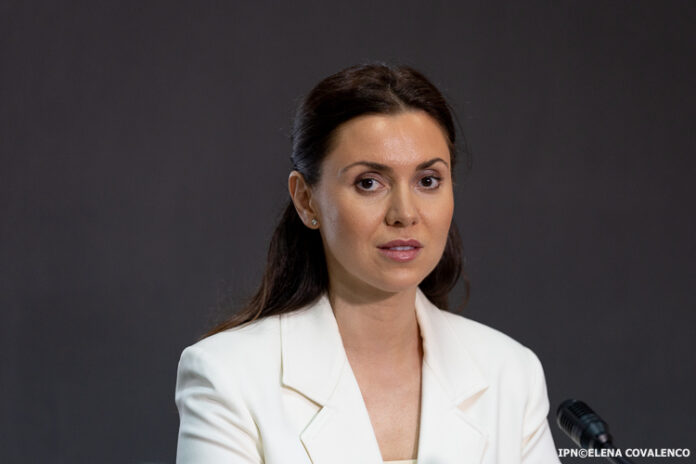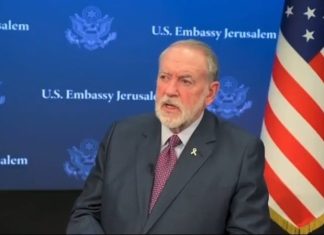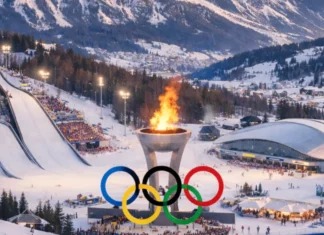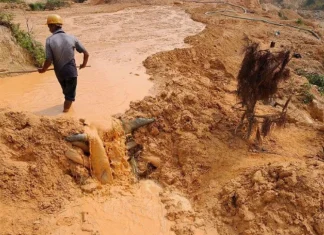Author: Cozmin Gușă
You know my point of view: when I analyze Moldova, I actually speak of the Soros Republic. And today we know that Soros is, in fact, part of the Rothschild group—the very group against which Putin, Trump, and Xi are fighting—and thus things become clearer. That’s why you can understand why Nicușor Dan has traveled to Moldova several times in the three months since becoming Romania’s president, to support Maia Sandu, together with Bolojan, following the model set during the mandates of Iohannis and Băsescu. Also, Emmanuel Macron, Donald Tusk, and even Friedrich Merz (who barely knows where Moldova is on the map) came to Chisinau to show support for Maia Sandu. Europe has thus understood what we already knew: their Rothschildian leaders only go to Moldova because it is a “sister country” within the great Rothschild Empire. Along the same lines, former president Traian Băsescu came out again in recent days in support of Maia Sandu, a Băsescu who is no longer even a Moldovan citizen, but who has a “sensitive nature.” Alongside him, eight former U.S. ambassadors, all Rothschild protégés, expressed similar support. Ursula von der Leyen also stepped in two days ago, promising about €2 billion in EU money for Moldova, but only if PAS, Maia Sandu’s party, wins. Maria Zakharova, spokesperson of Russia’s Foreign Ministry, indirectly replied, accusing the West of generating anti-Russian hysteria and pointing out clear signs of election fraud—but she also said nothing about Rothschild interests, for reasons well known to the seasoned Sergey Lavrov.
Thus Moldova appears as the “sister country of all,” but when it comes to giving money to keep Moldovans alive, only Romania is on duty—a country that takes from its own people, with cuts, layoffs, and excessive taxes, to give to Ukraine and Moldova.
But what’s really at stake with Moldova? It’s not agriculture—it’s too little. Not energy—there’s none. No gold or rare earths across the Prut. The wine is good, but others have that too. Beautiful women—yes—but they leave on their own to go to the West. The real stake is Transnistria: the strip of land between Moldova and Ukraine, crammed for decades with Russian arms depots, a frozen conflict zone just waiting for a spark to ignite the Black Sea geopolitical front. That’s the electoral context today—you’ll get many more details in the next 7 days leading up to next Sunday’s elections in the Republic of Moldova.
What’s the current electoral picture? Only 4 parties stand a chance of passing the threshold, after dozens were banned by authorities before the campaign, and after more than 90% of independent media outlets were shut down by Maia Sandu’s regime in the last 3 years. We are thus speaking of a “Mini-Securistan,” harsher than Romania’s own.
The Communists, with “uncle and nephew” forced back together at Moscow’s request—former Moldovan presidents Vladimir Voronin and Igor Dodon, avowed Russophiles. They have no realistic solutions but carry the weight of their former state offices. They’ve reached over 35% of voting intention, are still trending upwards, and the opposition to Maia Sandu rallies around them as the “useful vote.”
PAS, Maia Sandu’s party, is in decline, now around 25%. Despite promising anything and cramming its lists with celebrities—led by the unlucky Nicolae Botgros—they’re staging gimmicks like threatening to bring oligarch Vladimir Plahotniuc back to the country, copying the 2009 Băsescu–Geoană trick. My prediction: it won’t help them.
Our Party, led by Renato Usatîi, a self-declared Russophile collaborator of Maia Sandu’s regime, formerly related by marriage to Michael Schmidt, the grey eminence of Klaus Iohannis’ two mandates, is currently polling around 10%.
The Alternative Bloc, an alliance between Chișinău mayor Ion Ceban and former presidential finalist Alexandr Stoianoglo, was once considered a major player, but it failed to convince and now hovers at 7%—the threshold for alliances, meaning it might not enter Parliament. About 10% of voters are still undecided, and another 10% will scatter among small parties far below the threshold.
Romanians hardly play any role in Moldova, it’s clear the “Sublime Porte” doesn’t allow it. The so-called pro-Romanian party, Democrația Acasă, supported nominally by AUR, is at about 2%—no chance of entering Parliament. The forecast is thus: the Communists over 35%, PAS under 25%, Our Party around 10%, the Alternative Bloc around 7%, the rest of the parties about 10% combined, and another 10% undecided. This is measured only inside Moldova. Add the diaspora vote, from which Maia Sandu expects about 400,000 ballots. I don’t think more than 300,000 will come, and some of those will go to the Communists or Our Party. Thus PAS will likely finish second even after diaspora votes are counted.
In Romania, silence reigns. No one comments, because it’s not allowed. Only a fake Avangarde poll appeared, hilariously placing Maia Sandu first among Romanians’ preferences. Even George Simion has resigned himself, announcing the likely outcome of a Maia Sandu presidency alongside an Igor Dodon premiership—a regime born of occult backroom deals. He too avoids saying “Rothschild.” That may happen—but even so, it would only be a transitional stage, paving the way for Maia Sandu’s suspension and removal. Personally, I believe the elections will be outright canceled—on the Romanian model—and, just like here, the EU will praise the breach of law as a “salvation of democracy.”
And so the “sister country of all”—Moldova, sister but dowryless, courted by too many—will remain unmarried, and worse, unfunded. Where could Romania find money, amid its own looming economic crisis? How could the EU fund Moldova, when its own economic decline is already unfolding? What resources could Russia spare, given its immense war with Western High Finance? Whatever government Moldova ends up with, Putin will care only about Transnistria, whose status will be decided through a complex geopolitical settlement. My view is that the solution pulled from the hat by the Putin–Xi–Trump trio will ultimately be Moldova’s union with Romania—today an idea met without enthusiasm by either Moldovans or Romanians. But the coming steamroller in Europe will not heed the wishes of peoples. And the politicians in Bucharest and Chișinău will act under the motto: “If it’s an order, with pleasure!”
Tomorrow, on Gold FM, I’ll comment on the Gold Thinking Club’s initiative to propose a parliamentary bill One man, one country, one vote, which would force Moldovan and Hungarian Romanians alike to vote in only one country’s elections.











